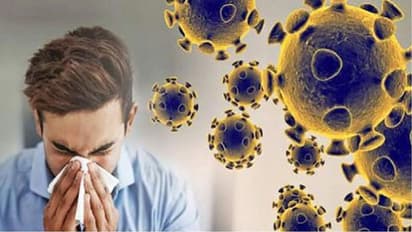New guidelines issued for mild cases of coronavirus; patients can self isolate at home

Synopsis
The new set of guidelines was issued on Monday by the Union health ministry. The guidelines say that the patient should be clinically assigned as a very mild case or pre-symptomatic case by the treating medical officer.
New Delhi: The Union health ministry said people who have very mild symptoms of coronavirus or those pre-symptomatic can opt for home isolation if they have the requisite self-isolation facility at their residence so as to avoid contact with other family members.
According to a new set of guidelines issued on Monday, the patient should be clinically assigned as a very mild case or pre-symptomatic case by the treating medical officer.
The patient should regularly inform his health status to the district surveillance officer for further follow up by the surveillance teams.
Also read: 6-month-old diagnosed with coronavirus dies
Also, the caregiver and all close contacts of such cases should take Hydroxychloroquine as a preventive medication according to the protocol and as prescribed by the treating medical officer.
All suspected (awaiting test results) and confirmed cases of COVID-19 disease are currently being isolated and managed in a hospital setting with the intent to break the chain of transmission, the ministry said.
Also read: Doctor assigned COVID-19 duty in Tamil Nadu booked for travelling to Kerala
As per existing guidelines, during the containment phase the patients should be clinically assigned as very mild/mild, moderate or severe and accordingly admitted to COVID Care Centre, Dedicated COVID Health Centre or Dedicated COVID Hospital respectively.
"However, very mild/pre-symptomatic patients having the requisite facility at his/her residence for self-isolation will have the option for home isolation," the ministry stated.
As per the global evidence 80% of COVID cases are mild cases while remaining 20% may develop complications which would require hospitalisation.
Out of the hospitalized cases of COVID-19, only 5% may require ICU care.
According to experts, the primary treatment for COVID-19 is supportive treatment in more than 80% of the patients and oxygen therapy in around 15% of patients along with other drugs.
According to the new guidelines issued by the health ministry, a caregiver should be available to provide care on a 24x7 basis.
A communication link between the caregiver and hospital is a prerequisite for the entire duration of home isolation.
Besides, the guidelines call for downloading the Arogya Setu App on mobile and it should remain active at all times (through Bluetooth and Wi-Fi).
Immediate medical attention must be sought if serious signs or symptoms including difficulty in breathing, persistent pain or pressure in the chest, mental confusion, developing bluish discolorations of lips/face develop or if is advised by treating medical officer.
"Patients under home isolation will end home isolation if symptoms are clinically resolved and the surveillance medical officer certifies him to be free of infection after laboratory testing," the ministry stated.
Stay updated with the Breaking News Today and Latest News from across India and around the world. Get real-time updates, in-depth analysis, and comprehensive coverage of India News, World News, Indian Defence News, Kerala News, and Karnataka News. From politics to current affairs, follow every major story as it unfolds. Get real-time updates from IMD on major cities weather forecasts, including Rain alerts, Cyclone warnings, and temperature trends. Download the Asianet News Official App from the Android Play Store and iPhone App Store for accurate and timely news updates anytime, anywhere.